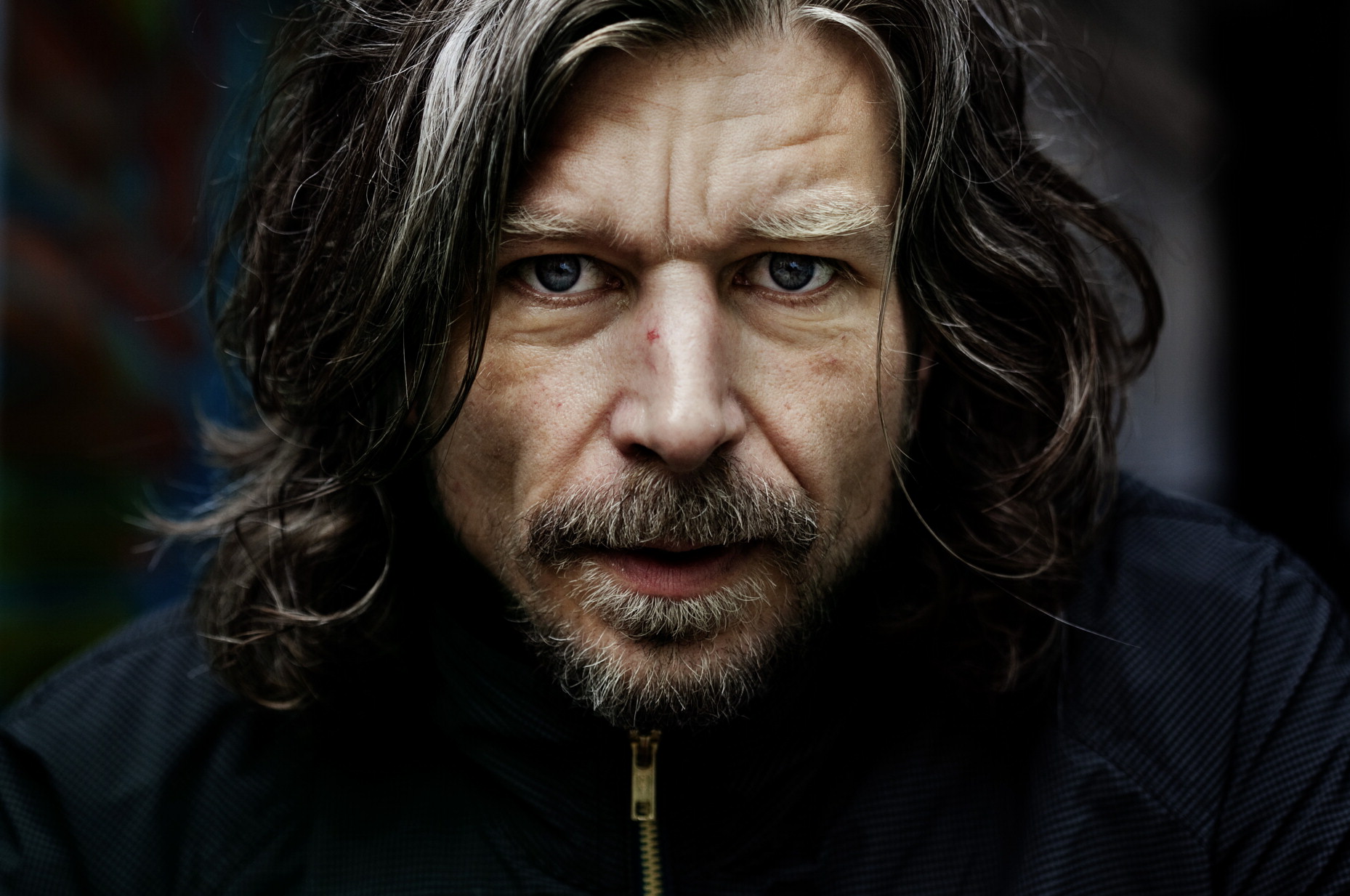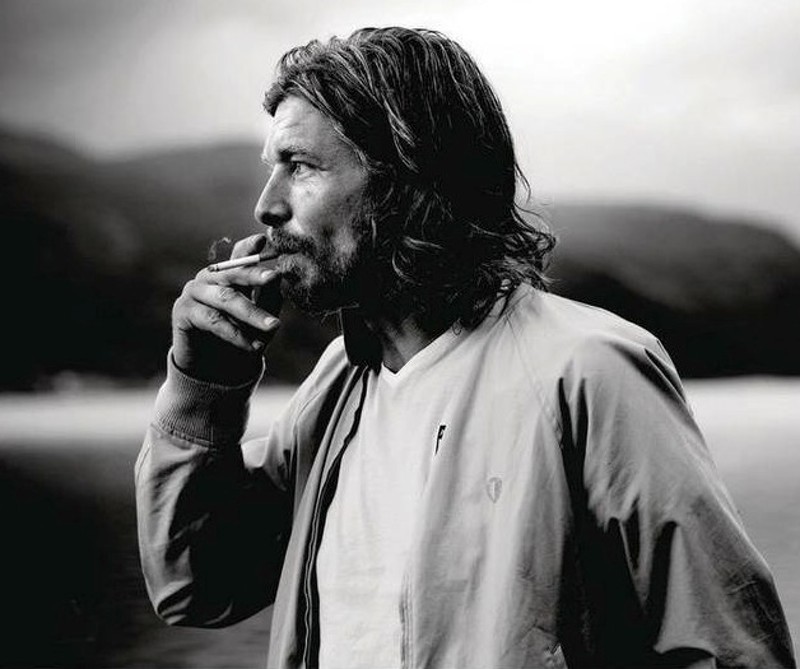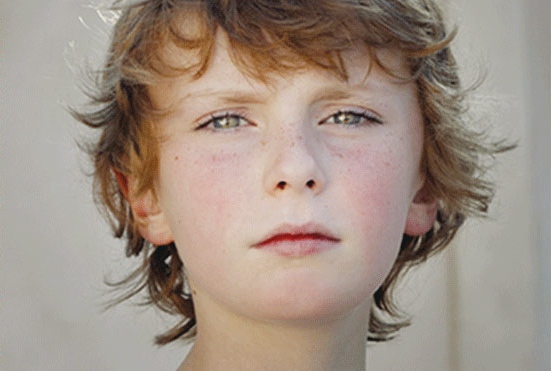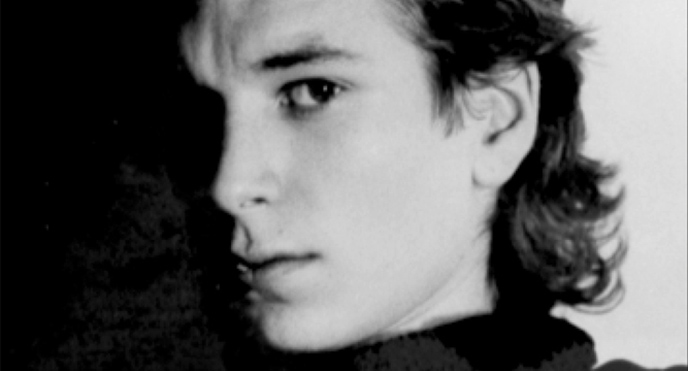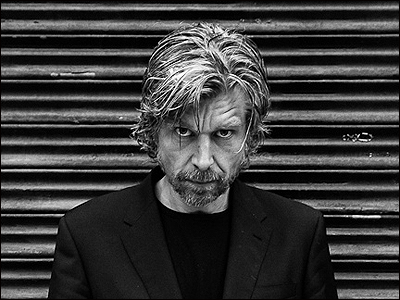My Struggle, vol. 4: Dan, September 2
Rising Star Coffee, Cleveland, OH
Friends, friends,
Two weeks ago, still in Minneapolis, still in love with the summer—a summer all the dreamier as I watched it dissolve into the last lazy sunsets above the City of Lakes—I lingered over a Fernet and asked my friend Matt, again, again, about high school.
"You think about it a lot," he said, a mild challenge. "More than's normal."
It's true. I'm easily marooned on this Brigadoon by ambivalent nostalgia for the last years of high school, a time when I was so preoccupied with the future, with who I was going to be, that I hardly recognized that I was catalyzing in the crucible of myself. This metaphor suggests I was to congeal, to cohere, and maybe I have, but, looking back, it's the irreconcilability of selves that seduces me, that seems proleptic, many substances held together by the weakest of bonds: my (broken, foolish, alienated) body.
So again I've succumbed to Knausgaard's capaciousness, the many "real mes" he's excavating, the plurality of adolescent selves that Katherine admires him for, and that Omari finally likes, and that accumulate by accretion (307). If dilation is one necessary mode of My Struggle, accretion has proved to be another—the slow burning formation of Karl Ove in layers and loops, not only the diachronic narration of a life, but, especially here in Book 4, synchronically, the disclosure of apparently disjointed personalities threaded together by "shame," united by a body and a name and that require hundreds of pages to unfurl (370).
Yes: how could I, in a paragraph, sketch the boy I was at eighteen, a boy who believed in Ayn Rand's humorless meritocracy, yet who delighted in the slapstick anarchy and corporate paranoia of Gravity's Rainbow, a boy who, working as a telemarketer, reveled in the power of swindling adults into sham furnace and ductwork cleanings—how could I reconcile this boy, who tormented a fellow student suffering, it would turn out, from a rare neurological disorder, with the boy who nevertheless believed himself essentially good, provincial, naïve—how could I, in just a page or two, bring to life the boy who fell in love with a stripper named Justice while at the same time swooning for the sweetest girl at school, his Hanne, a boy who, above all, like Karl Ove, believed himself a writer, who, like Karl Ove, publicized that identify for himself, "hi, I'm a writer"—how could I adequately represent this boy—this boy with whom, Diana tells us, we're already all too familiar, yet with whom I am unnaturally obsessed—how could I resurrect him, really, truly, without Knausgaard's sweep and scope?
I didn't know—blame it on my Minnesota upbringing—that narcissism could feel so good. "Pleasure, pleasure, pleasure," (106). It's a masochistic pleasure, for sure, this wallowing in shame. Katherine's right that no one can punish Knausgaard more than he punishes himself, but, this is the thing—it's the pain, the public self-flagellation, that I think Knausgaard enjoys. Like me, and quite the opposite of Lucille Bluth, Knausgaard gets off on disclosing. Tell me—I say, Knausgaard says—that I'm bad.
Behind those stoic eyes there's a boy who wants a whipping.
"It's like she gets off on being withholding" - Buster Bluth
This, though, is the gap between Knausgaard and Karl Ove, at least in Book 4: if Knausgaard, the one writing these volumes, is a masochist, adolescent Karl Ove can't bear psychic discomfort. He is a boy in need of affirmation in all his roles—teacher, writer, son, lover—a need he resolves by drinking to excess. Drunk, as he so often is here, he metamorphoses from a sad puppy into a reckless bro, one who invariably ends the night by coming in his pants.
He drinks because—and this seems endemic to being eighteen—no one tells him what he wants to hear, that he's great, instead everyone treats him like the novice he is and hates to be. In Håfjord, when veteran teachers offer him tips, he gets surly, defensive. He just wants to be left alone with his pupils, with Andrea, the thirteen-year-old who, it turns out, lies at the hidden heart of Book 4, the secret object of Karl Ove's taboo love. Richard, Karl Ove's supervisor, lurks as an avuncular presence, praising him only when he—Karl Ove—threatens to leave midyear, but otherwise only ever mildly chastises him, shows up at his door when he's hungover, seems always to be watching, a panopticon in service of Karl Ove's shame.
God, I remember being eighteen and writing bad pornographic Pynchon rip-offs—orgies, sadism, hysteria—and, like Karl Ove, printing them the moment I'd penned the last word, sending them to friends, acquaintances, even strangers, all of whom I expected to recognize my genius ("pleasure, pleasure, pleasure"), all of whom responded, as they do to Karl Ove, with tepid acknowledgment and whom I asked again and again, just like Karl Ove does, "'Is there anything you particularly liked?'" (102). No one knew how to respond without, I suppose, hurting my feelings. "'I liked it well enough,'" Yngve tells Karl Ove about one of his stories, sending him into a funk (98). Much worse, hundreds of pages later, Yngve asks, rhetorically, regarding Karl Over's story collection, "'You don't think anyone's going to publish it, do you? In all seriousness?'" (425).
"The fucking idiots," Karl Ove thinks, about Yngve and the rest of the haters, "I'll damn well crush every single one. I had to be big. I had to be" (426). Likewise, I fantasized obsessively about my Pulitzer acceptance speech, vengeance, comeuppance for the doubters. At least I knew I was great!
And when Tor Einar parodies Karl Ove's bad imitations of Hemingway—"Gabriel stuck his fingers up her wet cunt. Oh my God, Lisa groaned. Gabriel took his fingers out and smelled them. Cunt, he thought"—leaving the lines in Karl Ove's typewriter for him to find, K.O. loses his mind, downs a bottle of wine, locks himself in the bathroom, and vomits all over himself. Like a serious writer.
Deeper, sadder, is the drinking Karl Ove does because of his father. When he's sober, Karl Ove's father treats him coldly, peremptorily, lovelessly, only to ooze with paternal sentimentality when he's drunk. All Karl Ove wants is to be affirmed as a son, a gift his father can't give, or when he can it's meaningless. How devastating was his father's and Unni's sad terrible wedding? Karl Ove getting so drunk he passes out in the restaurant bathroom? His father's boozy self-pitying tears? But the passage that haunts me most in Book 4 is Karl Ove's memory of his father smashing an adder. "I must have been about ten. Dad went crazy, started throwing stones at it, I watched as they seemed to sink into the snake's body as they struck, the adder tried to get away, it was hit again and again until it lay beneath a pile of stones. But as we were about to walk on, out it wriggled again. Dad went closer, continuing to throw stones at it, he wanted me to do the same, I was on the point of throwing up, the snake was still now, Dad ventured closer and crushed its head with the big rock he was holding in his hand" (271). More than all the descriptions of his father's bad behavior, something here, in this brief allegorical scene, just a paragraph, wrecks me, makes me sick. How, to his father, the snake is a symbol, an offering, an opportunity to exorcise his rage, a rage with which he attempts to make his son complicit—but to the son the snake is not a symbol but a creature, an innocent victim of his father's guilt, writhing, resilient, suffering, hopeless, just like the son.
This passage gets me, too, I think, because it hints at the limits of the literal, because, despite the endless pages that describe his father's awfulness, it's the figuration of allegory that opens onto his father's abyss. In all this logorrhea, in this manic attempt to say everything, to put it all down, to be, as Katherine says, honest, there's still so much that can't be said, that only appears in the haunting, the worst thing about his father is not captured in the immediacy of his behavior but comes through in the less visible legacies of his rage. Or think about Andrea, how despite the masochistic savor of shame, Knausgaard can only barely, superficially recognize the eroticism of his love for the thirteen-year-old, a love with which we have to retrospectively invest Book 4's first four hundred pages, a love that, even then, haunts the entirety of My Struggle, that is the kernel of Geir's accusation in Book 2—an accusation that Karl Ove denies but can't inwardly reject—that he, Karl Ove, slept with a thirteen-year-old that year in the north. These hints, these hauntings, they gain their power through accretion, through the hundreds of pages in which they are there and not, and when we catch glimpse of them, these Easter Eggs, Andrea, the adder, they satisfy in a way that I think is unique to My Struggle, there's nothing like it.And yet, and yet, I've said nothing about Book 4's structuring narrative, the arc that propels it, the quest undertaken by the most important of Karl Ove's discordant selves, not the teacher, the writer, or the son, but the lover en route to pussy. Like American Pie, this is the story of a boy coming of age by coming in a woman—and it has to be a woman, Karl Ove can only desire women, or more precisely girls. (His homosexual panic, like, for Omari, his obsessive masculinity, is so defensive and over-the-top and indicative of repressed desire—"In my absolutely worst hours I used to imagine that I really was homosexual," "And of course I wasn't one either"—it can only be hilarious.) Still, shamefully, a virgin, and lying about it all the time, Karl Ove embarks in Book 4 "desperate for it," it's "the only thing" he wants, but his obstacle every single time, to my own personal relentless joy, is that "hated spasm": premature ejaculation (77, 121, 23).
In maybe My Struggle's best reveal of all, Knausgaard waits nearly four hundred pages to confess that he always comes early (that bittersweet jizz) because he "had never masturbated." He claims, incredibly, that he "hadn't even tried" (359).
And so, finally, many hundreds of pages and pairs of stained underpants later, our hero arrives at his destination, a music festival in Denmark, where he finds his "plump," thick-thighed grail (499). Her name is Vilde and they fuck and fuck and fuck. "Am I lying beside a naked girl with whom I can do what I want?" Karl Ove asks himself (501). Yes, Karl Ove's objectification is reprehensible, and yes, his obsession with his virginity is puerile, still, at the end of a volume glutted with pain and shame and sadness, I confess to feeling pleasure at this culminating romp, when Karl Ove's anxiety at last dissipates and he relishes being a sexual body, experiencing a liberating bliss that Knausgaard can't help but make weird by presenting us with the final image of Vilde with her head outside the tent, retching, while Karl Ove joyously fucks her from behind.
Friends, I've written this to you in a single marathon session, a manic caffeinated rush at the tail end of a summer that is only over according to the academic calendar. The days are still so hot, so languorous that I helplessly passed out on my futon yesterday at noon, while trying to figure out how to start this letter. Inevitably, when I try to figure out how to end, I feel a kind of sloppy happy gratitude for you, and your writing, which lingers with me always and throughout, and for the way the Slow Burn accumulates by accretion, itself an irreconcilable plurality threaded together by our strange collective body—and not a little shame.
Yours—in masochism—
Dan
ALSO IN THIS SERIES:
The Slow Burn, v.2: An Introduction
My Struggle, vol. 1: Cecily, June 6
My Struggle, vol. 1: Diana, June 9
My Struggle, vol. 1: Omari, June 14
My Struggle, vol. 1: Dan, June 17
My Struggle, vol. 2: Omari, June 24
My Struggle, vol. 2: Cecily, July 1
My Struggle, vol. 2: Sarah Chihaya, July 5
My Struggle, vol. 2: Dan, July 12
My Struggle, vol. 2: Diana, July 16
My Struggle, vol. 2: Jess Arndt, July 18
My Struggle, vol. 3: Omari, July 25
My Struggle, vol. 3: Ari M. Brostoff, August 1
My Struggle, vol. 3: Dan, August 4
My Struggle, vol. 3: Jacob Brogan, August 8
My Struggle, vol. 3: Diana, August 12
My Struggle, vol. 4: Katherine Hill, August 25
My Struggle, vol. 4: Omari, September 1
My Struggle, vol. 4: Dan, September 2
My Struggle, vol. 4: Diana, September 15
My Struggle, vol. 5: Omari, September 27
My Struggle, vol. 5: Diana, October 3
My Struggle, vol. 5: Dan, October 13

